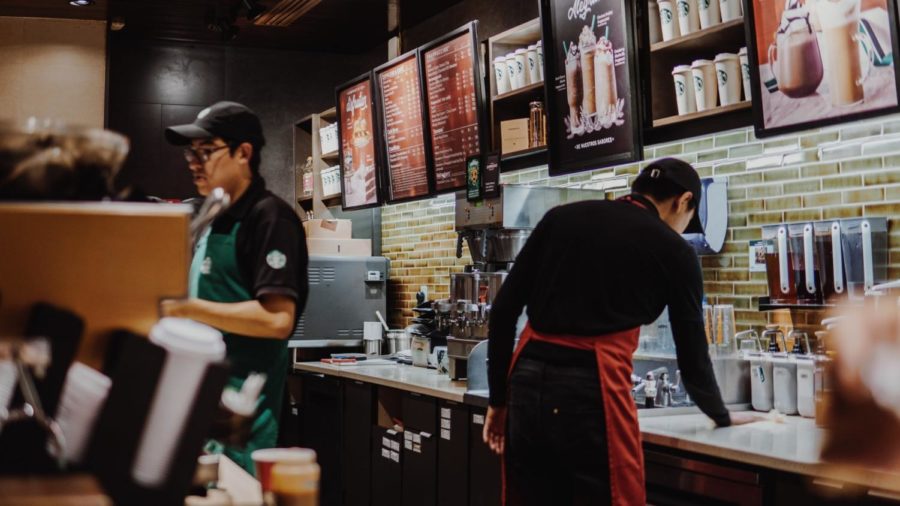Markfield: Supporting the fight for workers’ rights
Courtesy of Asael Peña via Unsplash
Columnist Harrison Markfield explains the recent push for workers’ rights and unionization of retail workers.
February 10, 2022
Though it may feel like its time has passed in some places, the butterfly effects of the COVID-19 pandemic on American life have yet to run their course. The last 24 months have changed how we conduct nearly every aspect of our lives, and recently, how retail workers engage with management.
Retail jobs have often been seen and discussed as being lesser: that they “aren’t supposed to be enough to live on,” or that they are work for people that are lazy, too dumb for higher education — a message that even came from the recently elected mayor of New York City in his crusade to become as unlikable as possible in the least amount of time.
The cultural disciplining and difficult working conditions for retail workers means that those positions — which are often vital sources of income for students, members of marginalized groups and people not afforded adequate opportunities by an increasingly stratified society — are subjected, without any protection, to wage theft, entitled customers and inadequate working conditions. This even includes any COVID-19 protections in some cases, including countless stories of workers being told to work sick or being unable to take time off if they test positive.
If those don’t sound like an environment where one would feel good about coming to work, then I would tend to agree with you. Thankfully, retail workers have begun to use their leverage in numbers and fight for their rights and working conditions by unionizing. And their employers aren’t happy about it.
Starbucks employees at stores in multiple states (New York, Michigan, Virginia, Tennessee, Texas and others) have pushed for union votes, many of them successful. Though only a fraction of Starbucks’ over 9,000 stores in the United States, any public push for unionization is a massive step for labor rights. Workers are able to show in public that they can come together and fight for their own individual needs and those of their coworkers to improve everyone’s lives.
The only people who lose out from a unionized labor force are capital, and capital has begun to retaliate. Seven labor activists in the Memphis area were fired for attempting to unionize at a local Starbucks. REI — a store famous for having consumer-owned cooperatives — made some pointed insinuations towards workers in New York City as well as created a website and podcast about why they ostensibly oppose unionization efforts. Amazon was caught influencing union elections at a plant in Bessemer, Alabama; A second vote will take place next month in what could be a watershed moment for a renewed American labor movement.
The most important thing to understand about why this wave of unionization is being met with such resistance is because it is a fundamental economic and capitalistic issue. To paraphrase, well, many people; nobody earns a billion dollars so much as deprive others of what should be theirs, and unions are an important breakwater against the worst excesses of their employers. Jon Bois puts it better than I ever could. Collective bargaining lifts every voice — despite what union-busting rhetoric would have you believe — and enables workers to be treated as humans and not instruments of capital.
For retail workers, long treated as the lowest common denominator of a hyper-capitalist economy with wealth inequality hurtling towards that of a third-world country, the opportunity to claw back some leverage from their employers is a massive step towards recognizing their humanity and value to society outside of being the person who makes your coffee in the morning. That they are doing so together, in solidarity and swelling numbers, is something worth celebrating and supporting.
Harrison Markfield is a sophomore in community and regional planning.







